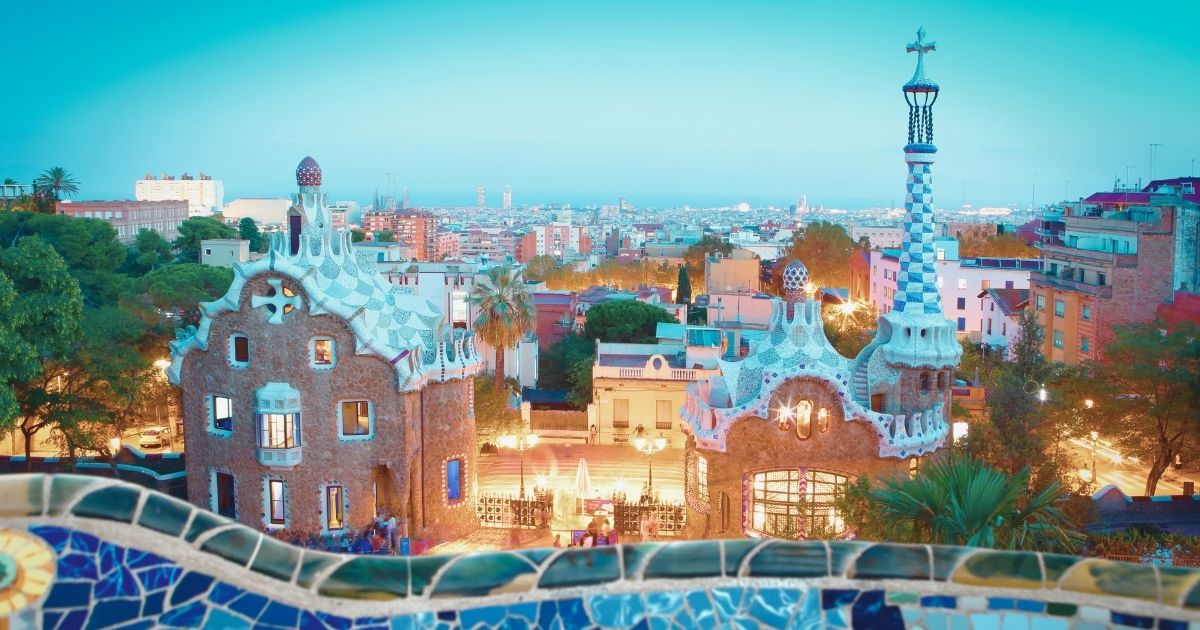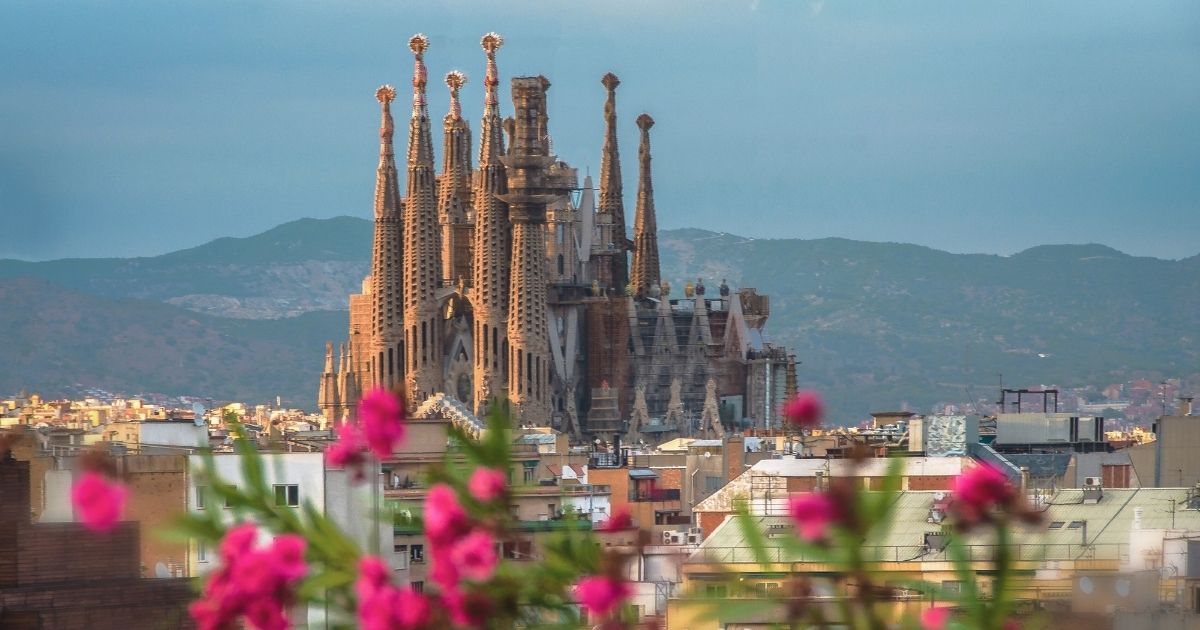Understanding the cost of living in Barcelona becomes essential for digital nomads planning their next destination or considering a longer-term stay in this vibrant Mediterranean city. Barcelona offers an attractive balance of quality lifestyle, rich culture, and reasonable expenses compared to other major European capitals.
The cost of living in Barcelona varies significantly depending on your lifestyle choices, neighborhood preferences, and spending habits. This guide breaks down all major expense categories to help you budget accurately for your Barcelona adventure.
Housing costs: your biggest expense
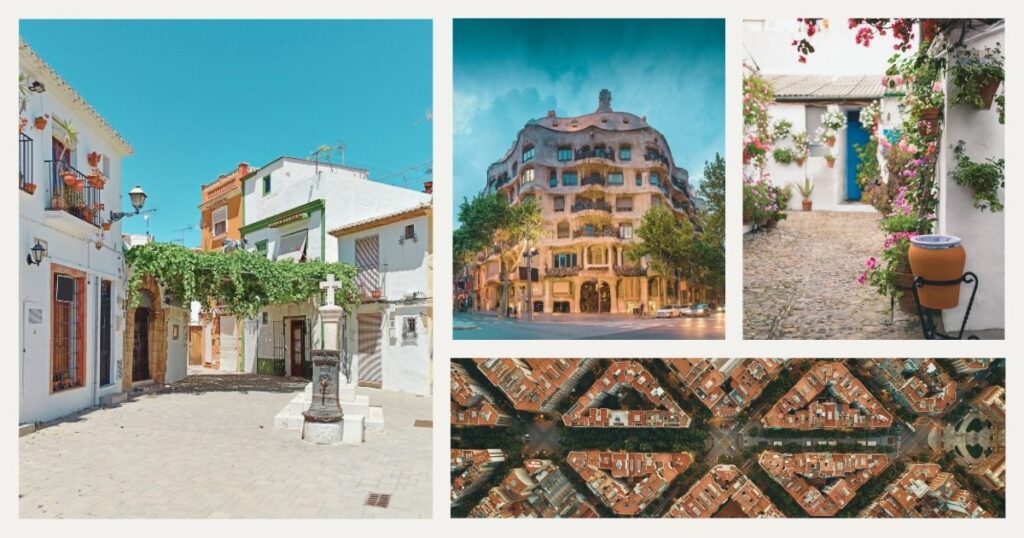
Accommodation typically represents the largest component of the cost of living in Barcelona, accounting for 40-60% of most digital nomads’ monthly budgets. The city offers diverse housing options, from shared apartments in trendy neighborhoods to private studios in quieter residential areas.
Rental market overview
The rental market significantly impacts the overall cost of living in Barcelona, with prices varying dramatically by location, size, and amenities. Monthly rent for a one-bedroom apartment ranges from €800-1,200 in central areas like Eixample or Gràcia, while similar accommodations in outer neighborhoods cost €600-900 monthly.
Shared accommodations provide more affordable options, with private rooms in shared apartments typically costing €400-700 per month, depending on location and amenities. Many digital nomads choose this option to reduce housing costs while building social connections with other international residents. Short-term rentals and serviced apartments command premium prices, often 20-40% higher than traditional leases, though they provide flexibility for initial settlement periods.
The rental process typically requires proof of income, bank guarantees, or deposit payments equivalent to 2-3 months’ rent. Many landlords prefer long-term tenants, making it easier to negotiate better rates for stays exceeding six months.
🌟 Pro tip: consider neighborhoods like Poblenou or Sants for better value while maintaining good connectivity to the city center. These areas offer lower rents with authentic Barcelona experiences away from tourist crowds.
Utilities and additional housing costs
Beyond base rent, utilities add €80-150 monthly to the cost of living in Barcelona depending on apartment size and usage patterns. This typically includes electricity, gas, water, and building maintenance fees. Internet service, essential for digital nomads, costs €30-50 monthly for high-speed fiber connections that support professional remote work requirements.
Security deposits usually equal 1-2 months’ rent, with many landlords requiring proof of income or employment contracts. Community fees (gastos de comunidad) for building maintenance and services typically add €30-80 monthly to housing expenses. Some rental agreements include utilities, while others require separate arrangements with service providers.
Air conditioning usage during summer months can significantly increase electricity bills, while heating costs remain moderate during Barcelona’s mild winters. Water costs are generally reasonable, though some buildings charge based on individual consumption meters.
Neighborhood price variations
Different neighborhoods create significant variations in the cost of living in Barcelona based on proximity to attractions, transport links, and local amenities. Prime areas like Born, Barceloneta, and Gothic Quarter command premium prices due to tourist appeal and central locations, often adding 20-30% to rental costs compared to residential areas.
Mid-range neighborhoods like Gràcia, Eixample, and Poble Sec offer excellent value with outstanding amenities, restaurant scenes, and transport connections. These areas provide authentic Barcelona living while maintaining reasonable proximity to major attractions and business districts.
Emerging areas like Poblenou and Sant Martí provide the best value for digital nomads, offering modern amenities, excellent internet infrastructure, and growing expat communities at more affordable prices. These neighborhoods often feature newer apartments with better layouts and facilities compared to historic center options, plus proximity to beaches and tech companies.
💡 Did you know? Barcelona’s rental market operates on different seasonal patterns, with peak demand during September-November and March-May when universities begin semesters and weather becomes favorable for relocations.
Food and dining expenses
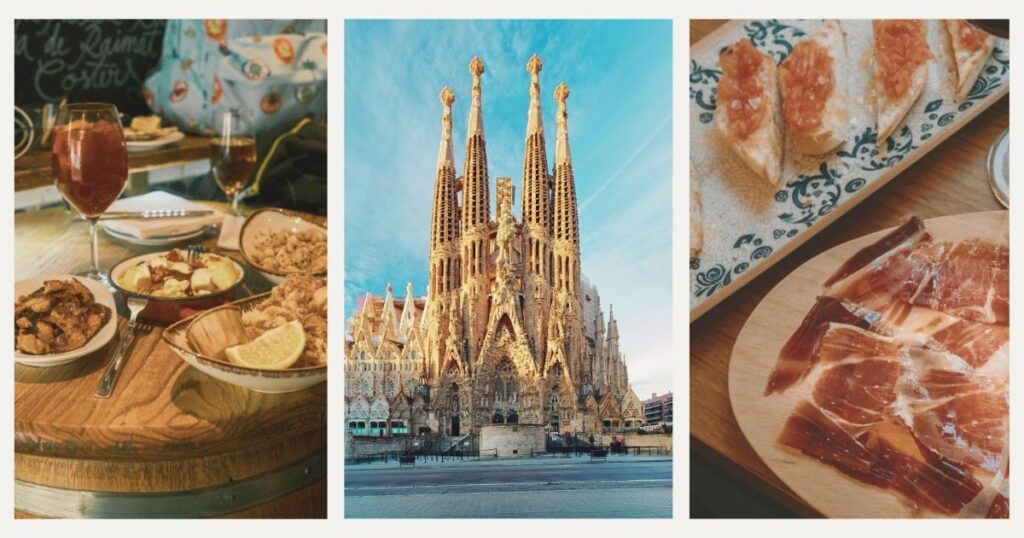
Food represents another significant component of the cost of living in Barcelona, though it offers excellent value compared to other major European cities. The Mediterranean diet emphasizes fresh, local ingredients, providing options for every budget.
Grocery shopping and home cooking
Grocery expenses typically account for €200-400 monthly in the cost of living in Barcelona for individuals who cook regularly at home. Local markets like Boqueria, Santa Caterina, and neighborhood markets offer fresh produce, meats, and seafood at competitive prices, often significantly cheaper than supermarkets for quality ingredients.
Supermarket chains like Mercadona, Carrefour, and Lidl provide convenient shopping with reasonable prices and extensive product selections. Fresh fruits and vegetables cost significantly less than in northern European cities, with seasonal produce offering exceptional value. Local specialties like jamón ibérico, manchego cheese, and Spanish wines provide authentic experiences at accessible prices.
Cooking at home dramatically reduces food costs compared to dining out daily. Basic ingredients for Mediterranean cuisine are readily available and affordable, making it easy to maintain healthy, cost-effective eating habits while experiencing authentic local flavors. Organic and international foods command premium prices but remain available in specialized stores.
Dining out and restaurant culture
Restaurant dining adds variability to the cost of living in Barcelona, depending on frequency and venue choices. Menú del día (daily menus) at local restaurants provide excellent value, typically costing €12-18 for three courses including drink. These represent authentic dining experiences while maintaining reasonable budgets and are available at most neighborhood establishments.
Casual dining at neighborhood restaurants costs €15-25 per person for dinner, while trendy establishments in tourist areas charge €25-40 per person. Barcelona’s tapas culture encourages sharing small plates, often providing social dining experiences at moderate costs while allowing diners to sample multiple dishes.
Barcelona’s extensive bar and café culture offers affordable options for coffee, light meals, and social activities. International cuisine restaurants generally cost more than traditional Spanish establishments, though the city offers diverse options, including excellent Asian, Latin American, and European restaurants across various price ranges.
🌟 Pro tip: take advantage of Barcelona’s aperitivo culture and late dining times. Many bars offer free tapas with drinks during evening hours, providing substantial snacks that can replace formal dinners while encouraging social interaction.
Transportation and digital connectivity
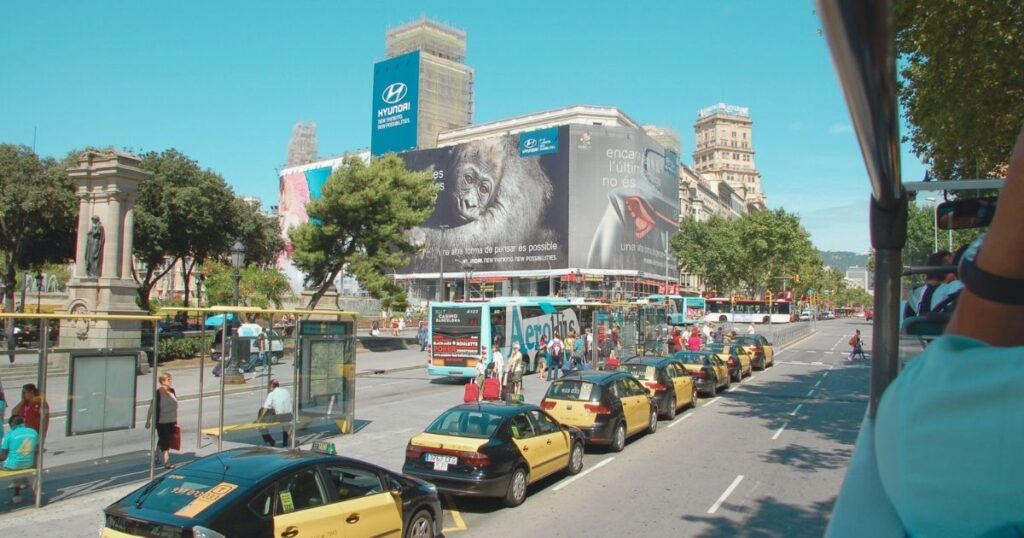
Transportation costs remain relatively low in the cost of living in Barcelona, thanks to excellent public transportation and walkable neighborhoods. The integrated network provides efficient connectivity throughout the metropolitan area.
Public transportation and mobility
Monthly public transportation passes significantly reduce mobility costs for those regularly using the system. The T-usual monthly pass costs €40 and provides unlimited travel on metro, buses, and trams within Barcelona’s city limits. This represents exceptional value compared to other major European cities and covers most daily transportation needs for urban residents.
Single journey tickets cost €2.40, making the monthly pass cost-effective for anyone taking more than 16 trips monthly. The city’s compact size means most destinations are reachable within 30-45 minutes via public transport. Night buses (Nitbus) provide late-night connectivity, though with reduced frequency compared to daytime services.
Bicycle usage increasingly impacts the cost of living in Barcelona as the city expands its cycling infrastructure. Bicing, the municipal bike-sharing system, costs €47.16 annually for unlimited 30-minute trips, making it extremely cost-effective for short journeys. Private bicycle purchases range from €200-800, representing one-time investments that significantly reduce transportation costs while providing health benefits.
Staying connected as a digital nomad
Staying connected while mobile affects the cost of living in Barcelona for digital nomads requiring reliable internet access. Most public transportation provides free Wi-Fi, though connection quality varies during peak hours.
For consistent mobile connectivity, consider reliable data solutions like Holafly’s flexible eSIM options that provide seamless internet access across Barcelona and throughout Spain. This ensures uninterrupted work capabilities while exploring the city.
High-speed internet service typically costs €30-50 monthly for fiber connections suitable for professional remote work. Mobile phone plans range from €15-40 monthly, depending on data allowances and features.
💡 Did you know? Barcelona’s public transportation operates on an integrated fare structure that includes trains to nearby beach towns and mountain destinations, making day trips extremely affordable compared to other European cities.
Entertainment and healthcare costs
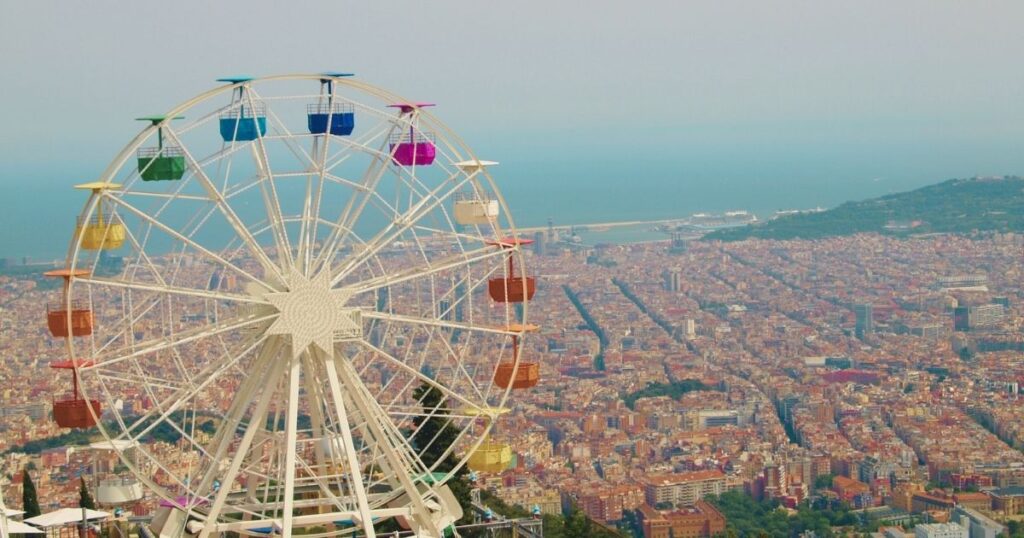
Entertainment and healthcare significantly influence the cost of living in Barcelona, though the city offers numerous affordable options alongside premium experiences.
Cultural activities and entertainment
Barcelona’s rich cultural scene provides diverse entertainment options which affect the cost of living in Barcelona. Museums typically charge €10-15 admission, though many offer free entry during specific hours. The city’s festivals, outdoor concerts, and street performances provide free entertainment year-round.
Cinema tickets cost €8-12, while theater and concerts range from €15-50. Barcelona’s nightlife offers options from affordable neighborhood bars charging €3-5 for drinks to upscale clubs with premium pricing. Beach access remains completely free, providing year-round recreational opportunities.
Gym memberships typically add €30-60 monthly to the cost of living in Barcelona, though many outdoor exercise areas provide free alternatives. Coworking spaces charge €150-300 monthly but provide networking opportunities and professional environments.
Healthcare and insurance
Healthcare expenses represent an important consideration in the cost of living in Barcelona. Spain’s public healthcare system provides comprehensive coverage for legal residents, significantly reducing costs for those qualifying for access.
Private healthcare insurance costs €50-150 monthly depending on coverage levels and age, providing faster access to specialists. Prescription medications generally cost less than in many other European countries due to government regulation.
Dental care typically requires private payment, with routine checkups costing €40-80. Many dental clinics offer payment plans for comprehensive treatment.
🌟 Pro tip: consider comprehensive international health insurance that includes dental and vision coverage if planning extended stays. Many policies offer better value than purchasing separate coverage for each service category.
Final thoughts on Barcelona’s living costs
The cost of living in Barcelona provides excellent value for digital nomads seeking a high quality of life in a culturally rich, professionally viable environment. While housing represents the largest expense category, careful neighborhood selection and accommodation type choices can significantly impact overall budgets. The city’s excellent public transportation, affordable food options, and abundant free entertainment create opportunities for comfortable living across various budget levels.
Barcelona’s growing digital nomad community and supportive infrastructure make it increasingly attractive for remote workers balancing professional requirements with lifestyle preferences. For comprehensive guidance on making the move, explore our detailed guide to living in Spain as a digital nomad to discover additional insights and practical tips.
Ready to make Barcelona your new base? The city’s combination of affordable living costs, excellent quality of life, and thriving digital nomad community makes it an ideal destination for remote workers. Let Nomada help you navigate your exciting Barcelona adventure! 👉
Frequently asked questions about living costs in Barcelona
A realistic monthly budget ranges from €1,200-2,000 depending on lifestyle choices and accommodation preferences. This includes housing (€600-1,200), food (€300-500), transportation (€40-100), and entertainment (€200-400). Higher budgets allow for better neighborhoods and private accommodations.
Barcelona offers significantly better value than cities like London, Paris, or Amsterdam, with costs approximately 20-30% lower for most categories. Housing costs are particularly favorable compared to northern European capitals, while food and entertainment provide excellent value for the quality offered.
Housing represents the highest expense, particularly in central neighborhoods where rents can reach €1,200-1,500 for one-bedroom apartments. International healthcare insurance, coworking space memberships, and frequent dining out also contribute significantly to monthly expenses compared to other categories.
Seasonal variations primarily affect accommodation costs, with summer months showing 15-25% higher rental prices due to tourist demand. Utility costs fluctuate with air conditioning and heating usage. Food costs remain relatively stable year-round, though seasonal produce offers better value during peak periods.
The most effective strategies include choosing accommodations in emerging neighborhoods like Poblenou, cooking at home using local markets, and taking advantage of menú del día offerings. Using public transportation monthly passes and participating in free cultural events provide significant savings while enhancing the experience.
